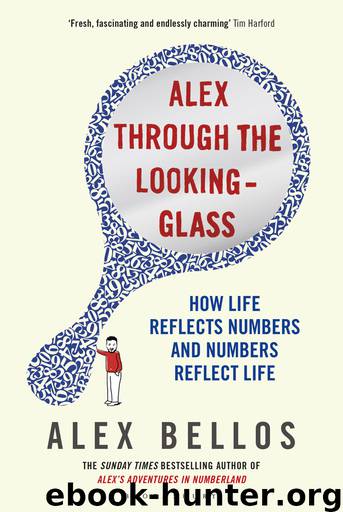Alex Through the Looking-Glass by Alex Bellos

Author:Alex Bellos [Bellos, Alex]
Language: eng
Format: epub
ISBN: 9781408845752
Publisher: Bloomsbury Publishing
(2) If k is less than the number I turned over, I say the number I turned over is highest.
(3) If k is more than the number I turned over, I say the number that remains face down is highest.
My strategy, in other words, is to go with the number I see, unless my random number k is larger. In this case I switch to the one I have not seen.
To see why the strategy gives me an edge, we need to consider the value of k with respect to the two numbers on the pieces of paper. There are three possibilities: (i) k is less than both of them, (ii) k is higher than both of them, or (iii) k is between them.
In the first scenario, whatever number I see, I stick with it. My chances of being right are 50/50. In the second scenario, whatever number I see, I choose the other one. My chances are again 50/50. The interesting situation is the third one, when I win 100 per cent of the time. If I see the lowest number, I switch, and if I see the highest number, I stick with it. When my random number serendipitously falls in the middle of the two numbers you wrote on the pieces of paper, I will always win!
(I need to explain in a little more detail how I generate k, since for the strategy to work k must always have a chance of being between any two given numbers. Otherwise, it is easy to find scenarios where I do not have an edge. For example, if you always write down negative numbers and my random number is always positive then my number will never be between yours and my odds of success stay at 50/50. My solution is to choose a random number from a ‘normal distribution’, since this gives a chance for all positive and negative numbers to come up. You don’t need to know anything more about normal distributions other than that they provide a way of giving a random number that has a chance of being between any two other numbers.)
There may only be a small chance that k will fall between your numbers. But because there is a chance, no matter how meagre, it means that if we play this game enough times my overall odds of winning increase beyond 50 per cent. I will never know a priori when I will win and when I will lose. But I never promised that. All I said is that I can win more than half the time. If you want to make sure that my odds stay as close to 50/50 as possible, you need to choose two numbers that are as close together as possible. Yet as long as they are not equal, there is always the chance that I will choose a number between them, and as long as this chance is mathematically possible, I will win the game more frequently than I will lose it.
Download
This site does not store any files on its server. We only index and link to content provided by other sites. Please contact the content providers to delete copyright contents if any and email us, we'll remove relevant links or contents immediately.
The Infinite Retina by Robert Scoble Irena Cronin(6247)
Harry Potter and the Cursed Child: The Journey by Harry Potter Theatrical Productions(4503)
The Sports Rules Book by Human Kinetics(4379)
Molly's Game: From Hollywood's Elite to Wall Street's Billionaire Boys Club, My High-Stakes Adventure in the World of Underground Poker by Molly Bloom(3535)
A Knight of the Seven Kingdoms by George R R Martin(3334)
How To by Randall Munroe(3106)
Flowers For Algernon by Daniel Keyes(3101)
Quidditch Through the Ages by J.K. Rowling(3100)
Quidditch Through the Ages by J K Rowling & Kennilworthy Whisp(2969)
Stacked Decks by The Rotenberg Collection(2880)
Quidditch Through the Ages by Kennilworthy Whisp by J.K. Rowling(2860)
Quidditch through the Ages by J. K. Rowling(2792)
776 Stupidest Things Ever Said by Ross Petras(2776)
Quidditch Through The Ages by J. K. Rowling(2761)
Ready Player One: A Novel by Ernest Cline(2717)
What If?: Serious Scientific Answers to Absurd Hypothetical Questions by Randall Munroe(2700)
Beautiful Oblivion by Jamie McGuire(2603)
The Book of Questions: Revised and Updated by Gregory Stock Ph.d(2567)
Champions of Illusion by Susana Martinez-Conde & Stephen Macknik(2449)
